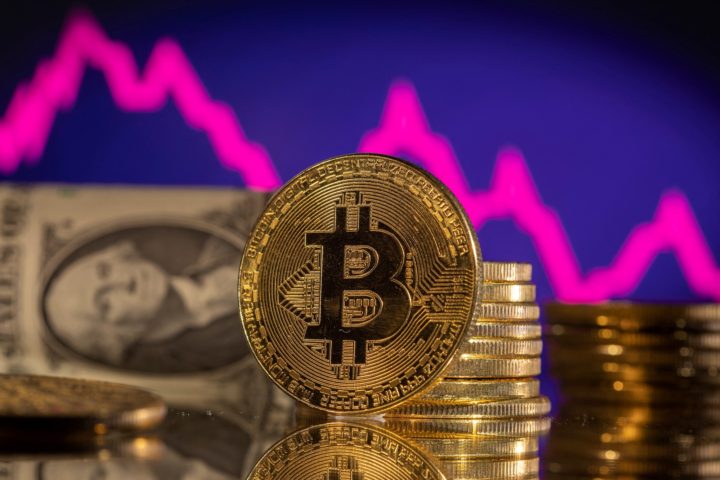Executives from Binance, a prominent cryptocurrency exchange, are reported to have informed their top market makers about a potential $4.3 billion settlement with U.S. authorities before it was made public, according to a Bloomberg report published on December 1.
During an exclusive dinner held in Singapore in September, Binance traders were apparently given insight into a tentative agreement between the crypto exchange and U.S. officials, roughly two months ahead of the public announcement.
Some Binance executives allegedly reassured certain traders that the exchange had the financial capacity to cover the hefty $4.3 billion penalty and continue its operations.
Interestingly, Binance’s CEO at the time, Changpeng “CZ” Zhao, was not present at the event.
Instead, Richard Teng, who took over from Zhao after the settlement, was reported to be mingling with the guests. A Binance spokesperson disputed the accuracy of the portrayal of the VIP event but did not specify which aspects were incorrect.
READ MORE: Coinbase Reports Surge in Law Enforcement Requests, with the U.S. Leading the Pack
In September, as per Richard Teng’s posts on X (formerly Twitter), the former head of regional markets was indeed in Singapore for various events, including the Token2049 conference, the Milken Institute Asia Summit, the Singapore Grand Prix for Formula 1, and several side events.
Additionally, Cointelegraph was scheduled to release an exclusive interview with the Binance CEO on December 3 at 6:00 pm UTC.
As part of the settlement agreement, Binance is obligated to pay $4.3 billion to various U.S. authorities and regulators. Notably, CZ himself is personally responsible for paying $150 million to the U.S.
Commodity Futures Trading Commission. At the time of this report, CZ was still on bail in the U.S., awaiting a court decision regarding his request to return to the United Arab Emirates before his sentencing in February.
While the settlement largely resolves many of Binance’s legal issues in the U.S., Binance.US and CZ still face a lawsuit filed by the U.S. Securities and Exchange Commission (SEC) in June.
Furthermore, a group of investors has initiated legal action against soccer star Cristiano Ronaldo for his involvement in promoting Binance nonfungible tokens (NFTs), which are alleged to be unregistered securities.
On November 30th, Bitcoin (BTC) displayed resilience in the face of fresh United States macroeconomic data, largely ignoring it as traders eagerly awaited the monthly closing figures.
Despite a recent failed breakout attempt, BTC prices remained in a narrow intraday range below $38,000, showing signs of stability.
The focus of market participants was on the Personal Consumption Expenditures (PCE) Index, the Federal Reserve’s favored gauge of inflation.
Hopes were high that the PCE Index would inject volatility into the market, but at the time of writing, it had not yet impacted the situation.
The data came in broadly in line with expectations, supporting the Fed’s monetary tightening stance and confirming a decline in inflation.
However, financial commentary from The Kobeissi Letter questioned whether this would lead to interest rate cuts, a critical consideration for risk assets.
Kobeissi Letter pointed to Bill Ackman, CEO of Pershing Square Capital Management, who had earlier predicted rate cuts starting in Q1 2024.
READ MORE: Swiss Asset Manager Pando Asset Joins U.S. Bitcoin ETF Race as BlackRock Refines Model with SEC
The commentary emphasized the lag effect of monetary policy, cautioning against premature rate cuts by the Fed.
Despite the PCE data, market expectations for Fed policy remained unchanged, with data from CME Group’s FedWatch Tool indicating near-unanimous expectations of a rate hike pause in the coming month.
For Bitcoin enthusiasts, the focus was primarily on the monthly closing figures. At the time of writing, BTC/USD had posted nearly a 10% gain for November, marking the first positive performance in the 11th month since 2020.
A close above $37,660 would represent the highest monthly closing price since May 2022, a positive signal for the cryptocurrency.
Analysts also noted the bullish potential in Bitcoin’s Relative Strength Index (RSI) readings.
Traders like Jelle pointed out the formation of a hidden bullish divergence over the past month, with Bitcoin breaking its RSI downtrend.
The key focus was on whether the price could hold in the designated range, and the monthly close was eagerly awaited as the cryptocurrency market braced for potential movements.
In summary, despite macroeconomic data and Fed considerations, Bitcoin remained steady, with traders closely monitoring the monthly closing figures as the cryptocurrency aimed for positive gains in November and potential bullish momentum in the coming days.
As the frequency of cyberattacks and breaches continues to plague companies, cybersecurity experts have shared their insights on enhancing crypto security for digital asset firms and the broader cryptocurrency industry.
Before September 2023, the crypto space had already suffered nearly $1 billion in losses due to hacks, exploits, and scams.
Unfortunately, the fourth quarter of 2023 witnessed more unsettling incidents, such as the Poloniex exploit, resulting in digital asset losses exceeding $100 million, and the HECO Chain bridge hack, which led to losses exceeding $80 million.
Given the rising number of security incidents and the substantial losses incurred with each breach, it is evident that digital asset security in the crypto industry needs significant improvement.
Consequently, Cointelegraph sought the opinions of cybersecurity professionals on measures to prevent further incidents and bolster crypto security.
Ronghui Gu, the co-founder of blockchain security firm CertiK, expressed strong disapproval of the ongoing incidents caused by SIM-swap attacks and multisig failures, especially after previous incidents had brought attention to these security vulnerabilities.
Gu emphasized the importance of embracing crypto-native multifactor authentication and conducting regular security audits.
He stated, “We’re building highly functional, highly complicated technology, and it’s important to prioritize security, even in the face of incentives to prioritize speed over security.”
READ MORE: Submit Your PR to Cointelegraph
Christian Seifert, a researcher in residence at Forta Network and former security lead at Microsoft, concurred that security should be paramount.
He stressed the need for users to demand enhanced security measures and suggested that regulators should intervene if necessary to compel crypto projects to adopt more comprehensive security strategies.
Seifert argued that security audits alone are insufficient and called for a comprehensive security strategy encompassing secure design, monitoring, and threat prevention solutions.
Jerry Peng, a research analyst at Web3 analytics firm 0xScope, emphasized the necessity of gaining a deeper understanding of the origins and potential emergence of security threats.
This understanding would enable companies and individuals to detect patterns and connections exhibited by addresses involved in previous attacks.
Peng highlighted the role of crypto data analytics services in assisting investigators in preventing potential future hacks.
Ronghui Gu revealed that, according to CertiK’s data, hacks in 2023 alone had already inflicted losses of $1.5 billion as of November 28.
He pointed out that these ongoing security breaches significantly impact crypto adoption by eroding public trust in the security and stability of digital assets.
Christian Seifert echoed similar sentiments, noting that early crypto adopters were willing to accept certain risks, but such tolerance will not be acceptable to the broader user base that the crypto industry aims to attract.
Seifert drew a parallel, stating, “Imagine losing all your savings because the branch of your bank was broken into overnight. You wouldn’t bank there.”
Jerry Peng also believed that hacks hinder potential market growth by discouraging individuals who were previously open to exploring the Web3 space.
In essence, these security incidents hinder the progress and adoption of the crypto industry by eroding trust and confidence in its security measures.
On November 29, Bitcoin (BTC) demonstrated resilience by maintaining its momentum at the $38,000 level, despite warnings of potential market corrections.
Bitcoin’s price trajectory continued to target new 18-month highs, as reported by data from Cointelegraph Markets Pro and TradingView.
It had previously reached highs matching those of the previous day, even surpassing $39,000 in futures markets.
The enthusiasm surrounding Bitcoin derivatives had led to debates about the possibility of large-volume traders leaving late long positions vulnerable at these elevated levels. Keith Alan, co-founder of monitoring resource Material Indicators, issued a word of caution to traders regarding what he referred to as “whale games.”
He highlighted an instance where liquidity at $38,000 was pulled to trigger a move to $38,500, emphasizing that it wasn’t necessarily a friendly gesture but rather a strategic move by large players.
Looking ahead, attention was focused on the words expected from Jerome Powell, the chair of the United States Federal Reserve, scheduled for December 1.
READ MORE: Spain Implements New Crypto Reporting Requirement for Residents Holding Assets Abroad
Powell’s statements could potentially serve as an external catalyst for Bitcoin’s price, with the possibility of it surpassing the $40,000 mark.
However, it was noted that whales (large cryptocurrency holders) would likely be closely monitoring a key level at which to sell off their holdings.
A chart accompanying the article revealed that the sell-side liquidity in the order book was concentrated at $38,500, a level that had not been challenged at the time of writing.
Despite these considerations, some remained optimistic about the possibility of further short-term upside, suggesting that increased trading volume was all that was needed for a breakout toward the $40,000 threshold.
In the broader financial context, Bill Ackman, CEO and founder of hedge fund Pershing Square Capital Management, expressed his belief that the Federal Reserve might have to make a pivot on interest rates as early as the first quarter of 2024.
Ackman argued that failing to cut rates soon would increase the risk of a “hard landing” for the U.S. economy as inflation subsided.
Key U.S. macroeconomic data, including the Q3 GDP and the October print of the Personal Consumption Expenditures Index, were expected to play a role in shaping Fed policy decisions.
It’s important to note that the article does not provide investment advice and emphasizes the need for individuals to conduct their own research when making investment decisions.
The Philippines Securities and Exchange Commission (SEC) has issued a stern warning against cryptocurrency exchange giant Binance, asserting that the platform has been operating in the country without the requisite approvals or licenses.
The regulatory body’s announcement, dated November 28, disclosed that Binance lacks authorization to sell or offer securities within the Philippines.
According to the SEC’s statement, Binance, like any other exchange, is obligated to undergo registration and provide comprehensive details about the securities it offers to the public.
This information encompasses aspects such as issuance prices, the nature of the securities, and other pertinent data.
The Philippines’ Securities Regulation Code (SRC) mandates that securities issuers be registered within the country before being made available for investment.
Additionally, they are required to secure a secondary license for selling or offering securities to the public.
The SEC’s database revealed that Binance, the platform operator, is not registered as a corporation in the Philippines and operates without the essential license or authority to distribute any form of securities, as stipulated by Section 3.1 of the SRC.
In addition to operating without the necessary license, the SEC accused Binance of unlawfully promoting its services within the Philippines.
READ MORE: Submit A PR to Bloomberg & Yahoo Finance
The regulator cautioned that entities involved in promoting or trading on Binance could face criminal liability under Section 28 of the SRC.
This criminal offense carries severe penalties, including fines of up to 5 million Philippine pesos (approximately $90,300) or imprisonment of up to 21 years, or both, as stipulated in Section 73 of the SRC.
Despite prior warnings, Binance has apparently continued to be a prominent cryptocurrency trading platform in the Philippines. Some users had previously praised its local services as “reliable and stable” on social media platforms.
Interestingly, a Reddit commentator speculated that the Philippines authorities might follow the regulatory decisions of the United States SEC concerning Binance’s legal status.
Binance was facing legal action by the U.S. SEC at the time, and if it lost the case, it could potentially impact its operations in various countries, including the Philippines.
Notably, this development comes shortly after Binance’s CEO, Changpeng Zhao, pled guilty in a U.S. court for violating U.S. Anti-Money Laundering laws and subsequently stepped down from his position.
Moreover, in September 2023, the Philippines SEC had entered into a partnership with the U.S. SEC to jointly combat cryptocurrency-related fraud.
At the time of reporting, neither Binance nor the Philippines SEC had responded to requests for comment from Cointelegraph.
Bitcoin deposits and withdrawals have been reinstated on HTX, the cryptocurrency exchange previously known as Huobi, following a devastating $30 million security breach that occurred on November 22.
In an official blog post dated November 26, HTX announced the resumption of deposit and withdrawal services for several cryptocurrencies, including Bitcoin (BTC), Ethereum (Ether), Tron, and Tether (USDT).
Justin Sun, the prominent figure associated with HTX, shared a subsequent update on X (formerly Twitter), revealing HTX’s intention to progressively restore functionality for the remaining cryptocurrencies. Sun expressed optimism that this process would be completed “by next week.”
The recent security incident marked the fourth hack in just two months to afflict crypto platforms linked to or controlled by Justin Sun.
HTX’s exchange hot wallets suffered a massive $30 million loss during this latest breach.
Additionally, on the same fateful day, the HTX Eco Chain bridge, involving HTX, Tron, and BitTorrent, all entities associated with Sun, fell victim to an $86.6 million cyberattack.
Another Sun-owned cryptocurrency exchange, Poloniex, faced its own ordeal when it experienced a $100 million attack on November 10.
Blockchain security firm CertiK indicated that this incident likely resulted from a compromise of private keys.
The series of security breaches dates back to September 24, shortly after the rebranding of Huobi to HTX.
During this earlier attack, an assailant made off with nearly $8 million worth of cryptocurrencies from the exchange’s hot wallet.
These security breaches have raised significant concerns within the cryptocurrency community, highlighting the vulnerability of platforms and the pressing need for robust security measures in the ever-evolving landscape of digital assets.
HTX’s efforts to restore services and enhance security are a crucial step in regaining trust and stability for its users and the broader cryptocurrency market.
With the approval of the first spot Bitcoin exchange-traded fund (ETF) in the United States, Bitcoin may be on a path towards reaching nearly $50,000, according to insights from CryptoCon, a prominent analyst.
The Ichimoku Cloud indicator, a tool that combines historical, current, and future trading signals, is signaling an upward trajectory for Bitcoin’s price.
Analyzing Bitcoin’s weekly timeframe, the Ichimoku Cloud indicator suggests that the recent gains in BTC price are just the beginning of a potential bullish trend.
CryptoCon shared his insights on November 27, predicting a specific target for Bitcoin’s price.
The Ichimoku indicator’s leading spans have recently intersected, forming a new upward cloud.
Furthermore, the lagging span, known as Chikou, has broken through resistance levels, indicating that the price is poised to move higher.
CryptoCon noted that the previous prediction made by the Weekly Ichimoku cloud accurately anticipated Bitcoin’s rise to $38,000 two months in advance, and now it points towards a new target of $43,000.
This projection typically takes around 7 to 11 weeks from the cross, with an average of 10 weeks, implying that the price could reach this level in early January.
READ MORE: Circle and SBI Holdings Forge Strategic Alliance to Boost USDC and Web3 Adoption
CryptoCon also suggested that $43,200 is a conservative estimate, and Bitcoin could potentially reach as high as $48,000.
He emphasized that the Ichimoku indicator, which looks into the future, indicates that there is more room for growth.
As of November 28, Bitcoin was trading at $37,000. The timing of the potential $48,000 target aligns with the expected approval date of the Bitcoin ETF in early January, assuming historical market patterns continue to hold.
However, the specifics of the ETF approval and which products will receive the green light remain uncertain.
Meanwhile, the U.S. Securities and Exchange Commission (SEC) continues to exert influence on the cryptocurrency market by taking enforcement actions against Binance, the world’s largest exchange.
Binance faced a significant $4.3 billion fine, and its CEO, Changpeng Zhao, was removed from his position. Interestingly, these developments have benefited Coinbase, a rival exchange, with its shares surging over 250% year-to-date.
In conclusion, Bitcoin’s potential ascent to nearly $50,000 is supported by the Ichimoku Cloud indicator’s signals, and its timing coincides with the anticipated approval of the first U.S.
Bitcoin ETF in early January, although regulatory uncertainties persist in the crypto space.
Japan’s tax authorities have reported a significant decline in the average value of undeclared income in the cryptocurrency sector, with a notable 19% decrease in 2022.
The Japanese National Tax Agency (NTA) unveiled its annual summary of tax investigations on November 24, shedding light on the state of crypto tax evasion in the country.
In the past year, the NTA launched 615 investigations into individuals’ crypto holdings based on their tax declarations for 2022.
This marked a notable increase from the 444 investigations conducted in 2021. Out of these investigations, the agency discovered tax violations in 548 cases, representing a substantial 35% rise compared to the 405 crypto tax evasion cases recorded in the previous year.
One of the most striking findings is the drop in the average value of undeclared crypto holdings.
In 2021, the average value stood at 36,590,000 Japanese yen, equivalent to approximately $245,000.
However, in 2022, this figure decreased to 30,770,000 yen, which amounts to around $206,000.
This shift in crypto tax enforcement comes after Japanese regulators, including the NTA and the Financial Services Agency (FSA), made an important announcement in August.
They confirmed that citizens would not be subject to capital gains tax on unrealized gains in cryptocurrencies, effectively exempting them from paying roughly 35% of taxes on crypto assets held without trading activities during the fiscal year.
Furthermore, Japan has recently joined a growing list of nearly 50 nations that have committed to swiftly implementing the Crypto-Asset Reporting Framework.
This international standard aims to facilitate the automatic exchange of information between tax authorities regarding cryptocurrency assets, enhancing transparency and compliance in the rapidly evolving crypto space.
In conclusion, Japan’s efforts to curb crypto tax evasion have intensified, resulting in more investigations and a decline in the average value of undeclared crypto holdings.
With the country’s commitment to international standards for reporting crypto assets, it appears that regulatory scrutiny in the cryptocurrency sector will remain a top priority for Japanese authorities in the coming years.
Christine Lagarde, the president of the European Central Bank (ECB) and a well-known critic of Bitcoin and other cryptocurrencies, recently revealed a personal anecdote about her son’s unsuccessful foray into the world of digital assets.
During a town hall meeting in Frankfurt on November 24, Lagarde disclosed that her son had suffered substantial losses from his cryptocurrency investments, despite her repeated warnings.
Lagarde recounted, with a touch of wry humor, that her son had “ignored me royally, which is his privilege,” and as a result, he ended up losing “almost all the money he had invested” in cryptocurrencies.
Although Lagarde did not specify the exact amount her son lost, she noted that he regarded it as “not a lot,” estimating that he had lost approximately 60% of his crypto investments.
Lagarde later revealed that her son reluctantly acknowledged her cautionary advice after this substantial loss.
The ECB president’s sentiments toward cryptocurrencies have been quite clear.
READ MORE: Montenegro Court Approves Extradition of Terraform Labs Co-Founder Do Kwon
She expressed her skepticism about the value of cryptocurrencies in 2022, stating that they are essentially “worth nothing” as they lack tangible backing.
In 2021, Lagarde also predicted that central banks worldwide would not be adding Bitcoin to their reserves anytime soon, reflecting her cautious stance toward digital assets.
In contrast to her criticism of cryptocurrencies, Lagarde has shown strong support for the concept of central bank digital currencies (CBDCs).
In April 2023, she admitted that a potential digital euro would have a “limited” scope, primarily intended for facilitating day-to-day payments.
This stance aligns with the ECB’s ongoing exploration of the feasibility and implications of launching a digital euro.
Overall, Lagarde’s personal account of her son’s crypto investment misadventures provides a glimpse into her deep-seated skepticism toward cryptocurrencies.
She firmly believes that while individuals have the freedom to invest and speculate as they choose, there should be stringent measures to prevent participation in illicit or criminal activities within the crypto space, reflecting her ongoing commitment to financial stability and regulation.
Recent events centering around the cryptocurrency exchange Binance have ignited a contentious debate regarding the United States’ approach to regulating crypto firms.
Omid Malekan, an accomplished author and adjunct professor at Columbia Business School, has voiced his perspective on the matter, emphasizing the stark differences between how the U.S. Department of Justice (DOJ) handles crypto cases compared to traditional finance.
Malekan contended that those who perceive cryptocurrency as a unique tool for facilitating illicit activities fail to grasp the intricacies of the broader financial system.
He pointed out that even companies adhering to Anti-Money Laundering (AML) best practices often process substantial sums of illicit funds, all deemed acceptable as long as the necessary paperwork is filed.
He further asserted that if Wall Street faced the same scrutiny as Binance, numerous managing directors would be incarcerated, resulting in reduced funds for shareholder buybacks and lobbying efforts.
Malekan opined that these financiers wisely refrained from questioning the existing system.
Nevertheless, Malekan did not absolve Binance of wrongdoing, emphasizing that the exchange was at fault for deceiving its customers and failing to comply with regulations.
Recently, Binance and its co-founder, Changpeng “CZ” Zhao, reached a multibillion-dollar settlement with the U.S. government.
READ MORE: Hong Kong’s Hospital Authority Harnesses AI to Tackle Rising Superbug Threat
They were accused of enabling individuals involved in illicit activities to transfer “stolen funds” through the exchange, prompting CZ to step down as CEO as part of the settlement.
In a surprising twist, Malekan also commended Binance for its role in promoting financial inclusion over the past few years.
He acknowledged that the exchange had successfully onboarded tens of millions of economically disadvantaged individuals, including those who are marginalized or underserved, into the financial system—a feat that compliant financial institutions worldwide have chronically struggled to achieve.
Shifting focus to a broader context, the International Consortium of Investigative Journalists (ICIJ) conducted an extensive investigation into global money laundering.
Leaked documents revealed that some of the world’s largest banks had allowed trillions of dollars to be laundered by criminals.
The investigation, disclosed in September 2020, scrutinized more than 2,100 suspicious activity reports spanning transactions worth over $2 trillion from 1999 to 2017, flagged as potential money laundering or criminal activity by the banks’ internal compliance officers.
Among the implicated financial institutions were major players such as the Bank of New York Mellon, Deutsche Bank, and HSBC.
To probe these alleged money laundering activities, the ICIJ enlisted over 400 journalists from 110 news organizations in 88 countries, highlighting the gravity of the issue.









